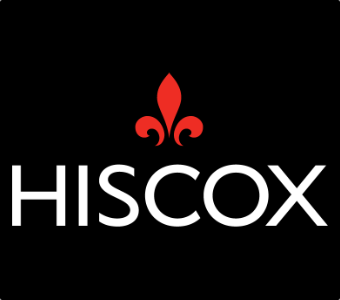Valuation has become an increasingly important element of assessing an investment in the insurance-linked securities (ILS) asset class, and while it’s vital to consider loss and modelling data, market intelligence plays an important role, explains JB Crozet, SVP Advisory Services & Head of London Office at Horseshoe.
 In the aftermath of the significant catastrophe loss experience in both 2017 and 2018, asset valuation has become increasingly topical in the ILS space.
In the aftermath of the significant catastrophe loss experience in both 2017 and 2018, asset valuation has become increasingly topical in the ILS space.
In light of this, Artemis spoke with Crozet, who leads the consulting arm at Horseshoe, the Bermuda-headquartered specialist reinsurance and ILS service provider.
Crozet joined Horseshoe in 2018, bringing 25 years of re/insurance industry experience to the company with a specialist actuarial, financial and catastrophe modelling skillset.
According to Crozet, the textbook definition of the fair value of an ILS asset, “is ‘the estimated price it would sell for in an efficient market, at the valuation date’. Determining the fair value for liquid assets, like cat bonds, is simple as they have trading prices published frequently, which gives a mark-to-market.”
For level 3 assets which are not traded and which include the majority of collateralised reinsurance, Crozet said that fair value gets more complicated and in these instances, it’s necessary to use a model rather than price observations, a ‘mark-to-model’.
“I would describe this approach to fair value as a price estimate which is based on a sound methodology, reflecting all the factors which could impact the price of the asset, and takes into account all relevant information available about the asset and the events covered.
“Of course ILS asset valuation, especially for the illiquid part of this market, is as an art and a science. While we will take into consideration industry loss and modelling data, we will also rely on market intelligence. The valuation process is not run in a vacuum and necessitates an open dialog with the Investment Manager,” continued Crozet.
In recent times, ILS asset valuation has become more and more topical across the space, and Crozet offered some insight into what could be the driver of this.
“Valuation has always been an important component of assessing an investment in ILS, but the two years of significant loss events in 2017 and 2018 made the number crunching ever trickier and ultimately exposed some of the shortcomings in the industry, including the intricacy of reinsurance structures, limitations of modelling, accuracy of claims information, loss creep and time lag for reporting.
“With this experience came the realization that not all valuation practices are created equal: some are coming up short in capturing the operational complexity of the transactions and others lacking the independence component,” he explained.
Adding, “Horseshoe has always believed that sound valuation and governance frameworks will be instrumental to the future of ILS, so we continue to embrace the importance of providing independent valuation services.”
Good value practices within the ILS asset class are required to ensure that the investor community is treated fairly and equitably. Crozet expanded on this point, noting that robust valuation practices also serve to “address conflicts of interest between the manager and the investors, since valuations directly affect the reported performance, and enable fair comparison of performance between managers.
“The final point,” according to Crozet, “becomes particularly important in our industry since a large loss event often triggers fundraising of new capital.”
Ultimately, Crozet warned that the lack of a robust valuation framework in the ILS space will result in an inability to sustainably attract or retain investors.
“Transparency, independence, expanded investor reporting and disclosures, enhanced governance and regulatory compliance have become the new reality in ILS and the capital markets in general. We believe that addressing fully these requirements will increase the credibility of our asset class and attract a larger inflow of capital from sophisticated investors.
“That is why at Horseshoe, we work closely with our ILS fund clients, support them and offer them an independent check to ensure that their valuation practices evolve with best-practice,” he told Artemis.
Of course, asset valuation in ILS presents challenges and complexities, with the two most notable pitfalls being methodological and governance. As explained by Crozet, the former relates to the drivers of value, and the latter to the use of information.
“Reinsurance or retrocession contracts are often complex in their exposures and financial structures, which makes them akin to exotic derivatives. Without a sound methodology and robust modelling, there is the risk that fair value will not capture all the factors impacting the price. These factors include uncertainty in the loss information available or any embedded options in aggregate structures, and unfortunately history tells us that these shortcomings in valuation are often uncovered too late, and at the most distressed times.
“Governance pitfalls relate to the use of information. Valuation is not soothsaying! But it needs to capture all relevant information and make best-estimate projections. I’ve heard people in our industry say ‘there is creep and then there is CREEP’ about Irma and Jebi. Put simply ‘creep’ is the whole market having to absorb new information about the event, which trading prices would not have captured beforehand, and ‘CREEP’ is valuation methodologies not evaluating and applying new information as effectively as possible.
“I believe governance pitfalls are inherent problems with the valuation process, where a lack of independence or independent review can lead to preconceptions in the interpretation, analysis or review of the information available. Our role is to provide that independent review and add value by challenging the status quo,” said Crozet.
As the ILS sector continues to evolve and greater emphasis is placed on the importance of a sound valuation framework, Artemis questioned Crozet on what the future might hold.
“I am a firm believer that we will see more standardization in “mark-to-model” valuations. Investors are looking for consistency across their ILS investments and will progressively rally around an industry standard which provides a guarantee of quality.
“The collaborative effort within the industry under the Standards Board for Alternative Investments (SBAI) banner is a great first step in that direction, and I expect we will see more prescriptive standards emerge on governance, methodology and independence.
“I also anticipate an increase in the liquidity of exchange-traded assets, which means more “marking-to-market” but also the potential for pricing dislocations to be “arbitraged away” by superior valuation techniques.
“However, I don’t foresee the ILS class ever becoming completely “marked-to-market”, simply because each asset class has its contingent or sub-classes of private transactions which sit alongside publicly traded ones. Equities is a good example where we have private equity rubbing shoulder with publicly-traded stocks,” he stated.
To end, Crozet highlighted the crucial role that specialist independent valuation providers play in the ILS space.
“Not only do they bring methodological discipline, but they also leverage their unique access to market data to generate fair values. Horseshoe is in a unique position whereby we service half of the ILS market and therefore we have a tremendous amount of market data to help us make more informed judgement,” he said.
 View all of our Artemis Live video interviews and subscribe to our podcast.
View all of our Artemis Live video interviews and subscribe to our podcast.
All of our Artemis Live insurance-linked securities (ILS), catastrophe bonds and reinsurance video content and video interviews can be accessed online.
Our Artemis Live podcast can be subscribed to using the typical podcast services providers, including Apple, Google, Spotify and more.






























